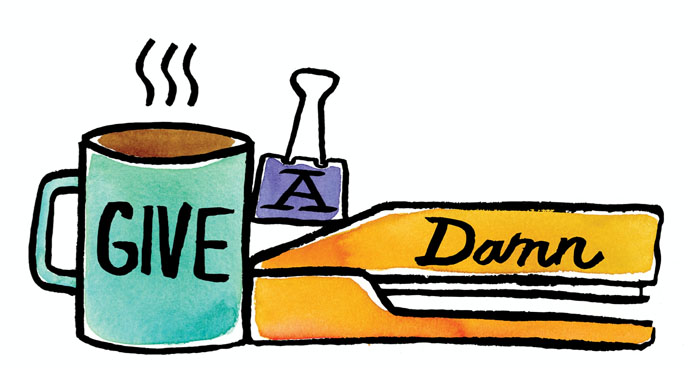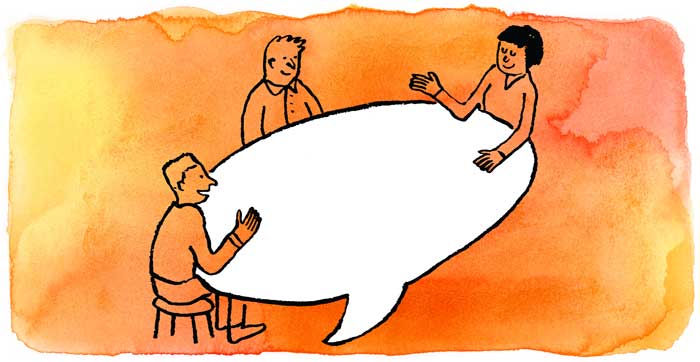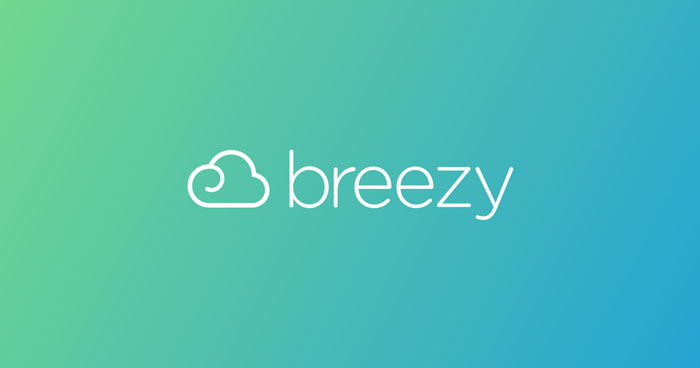
Though traditional interviews haven’t gone by the wayside, more and more companies are taking an out-of-the-box approach when it comes to vetting candidates.
Namely: problem-solving (a.k.a. behavioral) interviews.
What's the buzz about behavioral interviews?
Here's how the Society For Human Resource Management (SHRM) breaks it down:
“Answers to behavioral interview questions should provide verifiable, concrete evidence as to how a candidate has dealt with issues in the past. This information often reveals a candidate’s actual level of experience and [their] potential to handle similar situations in your organization.”
A recent poll by The Knowledge Academy suggests companies want to left-swipe the traditional interviewing process altogether, exchanging the endless CV-scroll for ideas like escape rooms and professional speed dating to get the kind of "concrete evidence" employers crave.
In another example, Menlo CEO Richard Sheridan is so big on teamwork he ditches the interview process altogether, opting to pair candidates with current employees to see how the well they collaborate in real life, long before an employment contract is signed.
But your org might not be ready to make that kind of leap. So we’ve compiled a go-to list of top behavioral interview questions to help you get better insights, without having to DIY your own candidate boot camp.
15 examples of problem-solving interview questions
Each interviewing situation is unique. Questions for an entry-level position obviously won't get you very far with an executive-level candidate.
Before you launch into any behavioral interview, take time to match your questions to your open role. And remember, the more structured your interview process, the easier it'll be to make the right call.
Here are three of the most common behavioral interview scenarios and our top questions for each.
Leadership roles
The Q: Describe the most difficult work team you've had to lead? What made it challenging? How did you go about overcoming the issues?
Why it works: Asking a candidate to rate the difficulty of working with others is a great way to see whether they throw their team under the bus or focus more on the problem/solution aspect of the question. A strong candidate will map out how they overcame the situation and prevented it from becoming a long-term issue within the company.
The Q: What do you consider your proudest moment or greatest achievement in the workplace? What were the practical steps that got you there?
Why it works: We admit, some leadership skills come naturally. But most require planning, sound decision making and the ability to take action. A candidate who doesn’t just regurgitate their resume but gives actual insight into how they achieve this insanely awesome skill is someone who's willing to think about process and the importance of why they're in a leadership position in the first place. In other words, no showboating allowed.
The Q: Tell me about a project where you had to manage a cross-functional team to achieve a specific goal or outcome. How did you adapt your leadership style to achieve this objective?
Why it works: The ability to adapt is crucial for strong leaders. No single leadership style matches every work situation. Exceptional leaders know how to tune into their teams and adapt accordingly.
The Q: Describe a situation where you succeeded in motivating your team to improve their performance. What actions were the most effective?
Why it works: You're looking for an executive candidate who has the right mix of diplomacy and energy to get the best work out of every employee. If your candidate knows how to get other people charged up to be part of the team, you’ve got a potential winner on your hands.
The Q: Describe a leadership role you've undertaken outside of work. Why did you choose to commit to this role? How did you benefit from it?
Why it works: Great leaders don’t leave their leadership hats in the office. Knowing your candidate takes on leadership roles in their community, be it volunteering, coaching or running a professional group, helps solidify whether they own up to their superpowers, or simply sport the cape around the office.
Creative roles
The Q: What is the most creative idea or project you've generated in your current role? How was it received?
Why it works: Creativity can mean something completely different based on the role and organization. But a true creative will have a unique approach to problem-solving (even if they aren’t interviewing for the role Art Director). Their ability to take criticism will also shine through in this question.
The Q: In what ways have you encouraged your work team to be more creative and innovative?
Why it works: A creative person will help others think outside the box. How your candidate answers this question will give you insight into their teamwork skills and help cue you into how they apply their creativity at the strategic level.
The Q: Every creative needs an outlet. What creative work do you like to do in your own time?
Why it works: Do those creative juices flow into other areas of life? If your creative candidate lights up when you ask about their hobbies and work outside the office, you know that same energy will flood into the workplace, too.
The Q: What tech tools do you use daily?
Why it works: Creatives tend to love tech and knowing how they keep their tech skills sharp gives you a glimpse into what strategies they'll bring to the table to help keep your company on the cutting edge.
The Q: What do you think of our creative materials?
Why it works: If your candidate is truly invested in your brand, they probably did their homework. The right person will be eager to offer insight into your marketing, branding or other creative projects. Someone who shows up with their A-game and isn’t afraid to deliver their very own 'like it, love it, leave it' feedback about your brand is a keeper.
Technical roles
The Q: Have you ever improved project workflow based on your analysis? If so, how did you do this?
Why it works: If there's one thing every great techie should have it's laser-precise attention to detail. You want a candidate who takes a proactive approach to optimizing workflows and doesn’t hang back hoping for someone else to step in and make things more efficient.
The Q: Have you ever had a deadline you weren't able to meet? What happened? How did you handle it?
Why it works: In a fast-paced tech environment, deadlines can get pushed back due to things beyond your candidate’s control. If they own up to this and demonstrate that they know how to stay cool under pressure, it’s a good sign they can handle the heat.
The Q: When you’re working with a large number of clients, it’s tricky to deliver excellent service to them all. How do you go about prioritizing your clients’ needs?
Why it works: Time management skills are crucial in technical roles. A candidate who's not only able to deliver the coding and programming goods but can also manage a tight schedule and full plate of client requests is aces in our book.
The Q: Give an example of a time when you had to explain something fairly complex to a frustrated client. How did you handle this delicate situation?
Why it works: Techies have their own jargon but it’s important for your candidate to be able to convey their work to the everyday client. If they can’t explain what they do in layman’s terms, this could be a red flag for any role with a client-facing component.
The Q: Talk about a time when you worked under extremely loose supervision. How did you handle that?
Why it works: Many tech employees work remotely or with flex schedules. It’s important for your candidate to be a self-starter. Look for specific insights about the tactics and methods they use to manage their own schedule, meet deadlines and deliver on project expectations.
3 "problem-solving" questions you should NEVER ask
Some interview questions are awkward, others are illegal.
We know you're not out to violate anyone's rights, but even the most well-meaning managers can end up asking lousy interview questions. How lousy, you ask?
These ones top our list of major no-nos.
1. “Tell me about your biggest weakness.”
Oh, you mean like the time I accidentally disconnected the server and left thousands of customers without service for hours? Get real. No one's going to reveal their Kryptonite during an interview. This question generates the most canned answers imaginable ranging from “I’m a workaholic,” to “I overdeliver and exceed expectations.” 🙄
2. “If a song described you, what would it be.”
Avoid this and any other overly abstract question asking a candidate to describe themselves in bizarre metaphors. Be direct. Relate the questions to the position and interviewee, not some over the top hypothetical about whether someone sees themself as a shark or a unicorn.
3. “Tell me about your [sexual orientation, relationship status, ethnicity, race, religion, political affiliation].”
One word: creepy. Oh, and: illegal. (Okay, that's two words but you get the idea.)
Fact is, any question that doesn't jive with the EEOC not only violates the candidate’s rights, it may also have you searching for a new career. Just don't go there.
Why there's no such thing as a magic-bullet interview question
At the end of the day, no single thread of interview questions will work as a one-size-fits-all.
Human hiring requires human thinking. By analyzing and hand-selecting thoughtful questions, you can ensure a consistent interview flow with all candidates while avoiding generic replies and those dreaded awkward silences. Just make sure they're questions that both you and your candidate can feel good about.
Because the truth is, these “tell me about a time when” questions have become a gold standard to help employers gain better insight about potential team members, but the right strategy is Mary J’s “Everything” when it comes to designing an interview that actually works.






